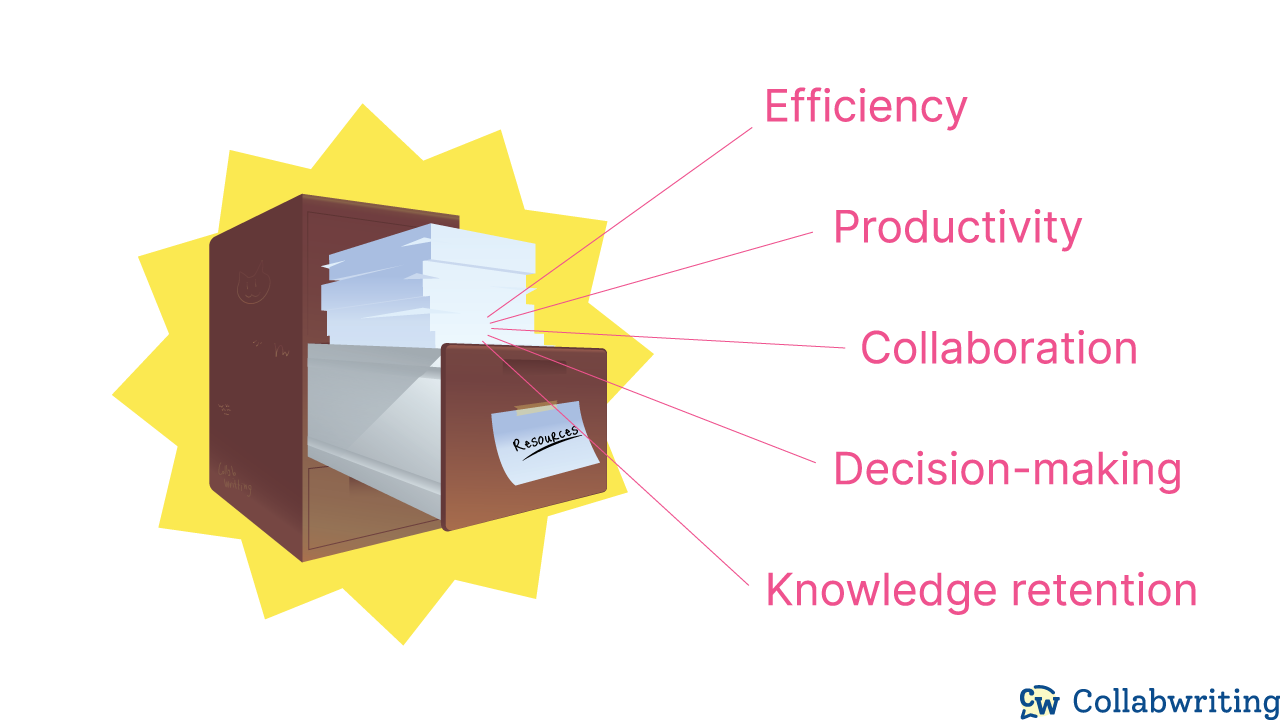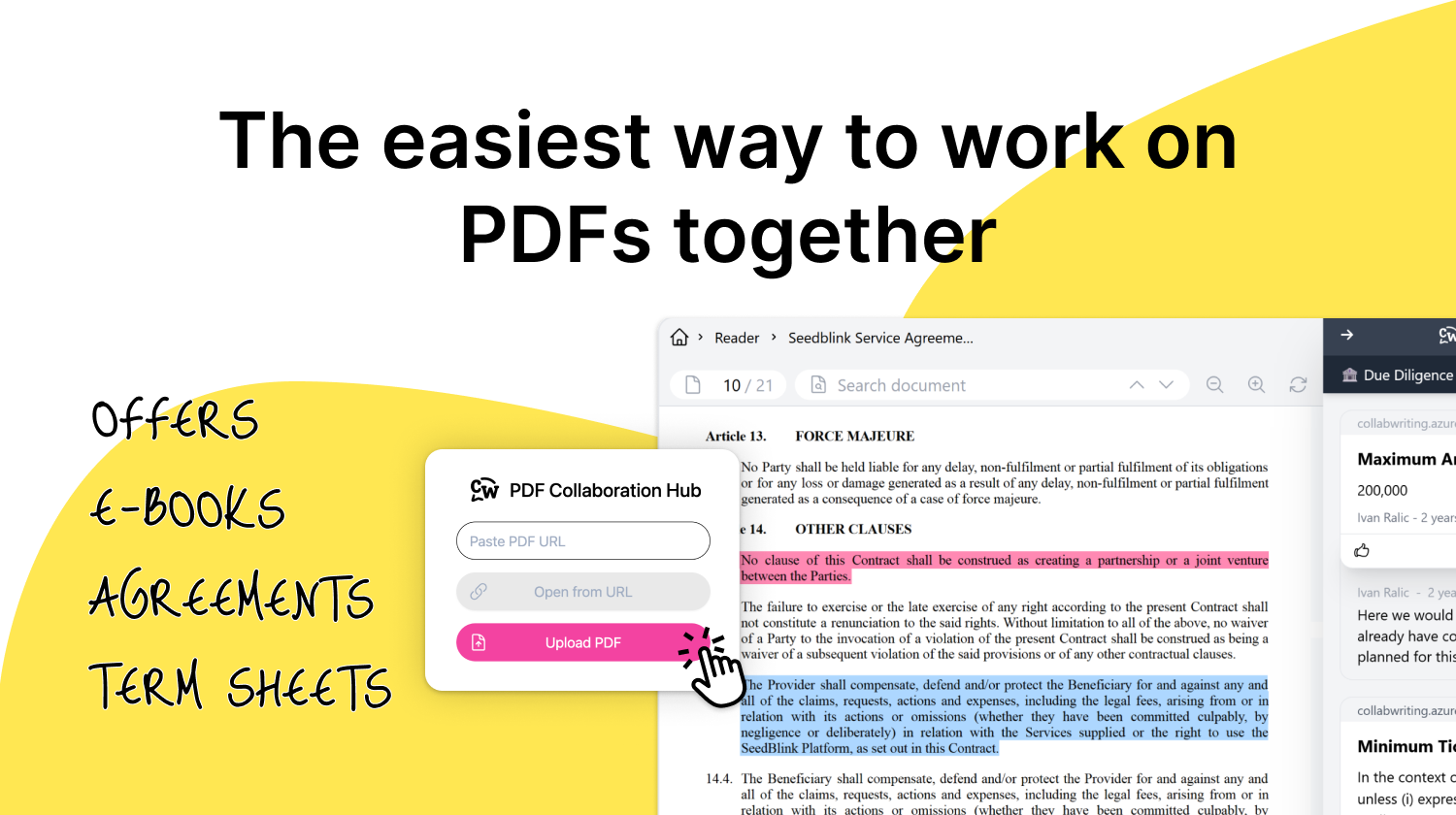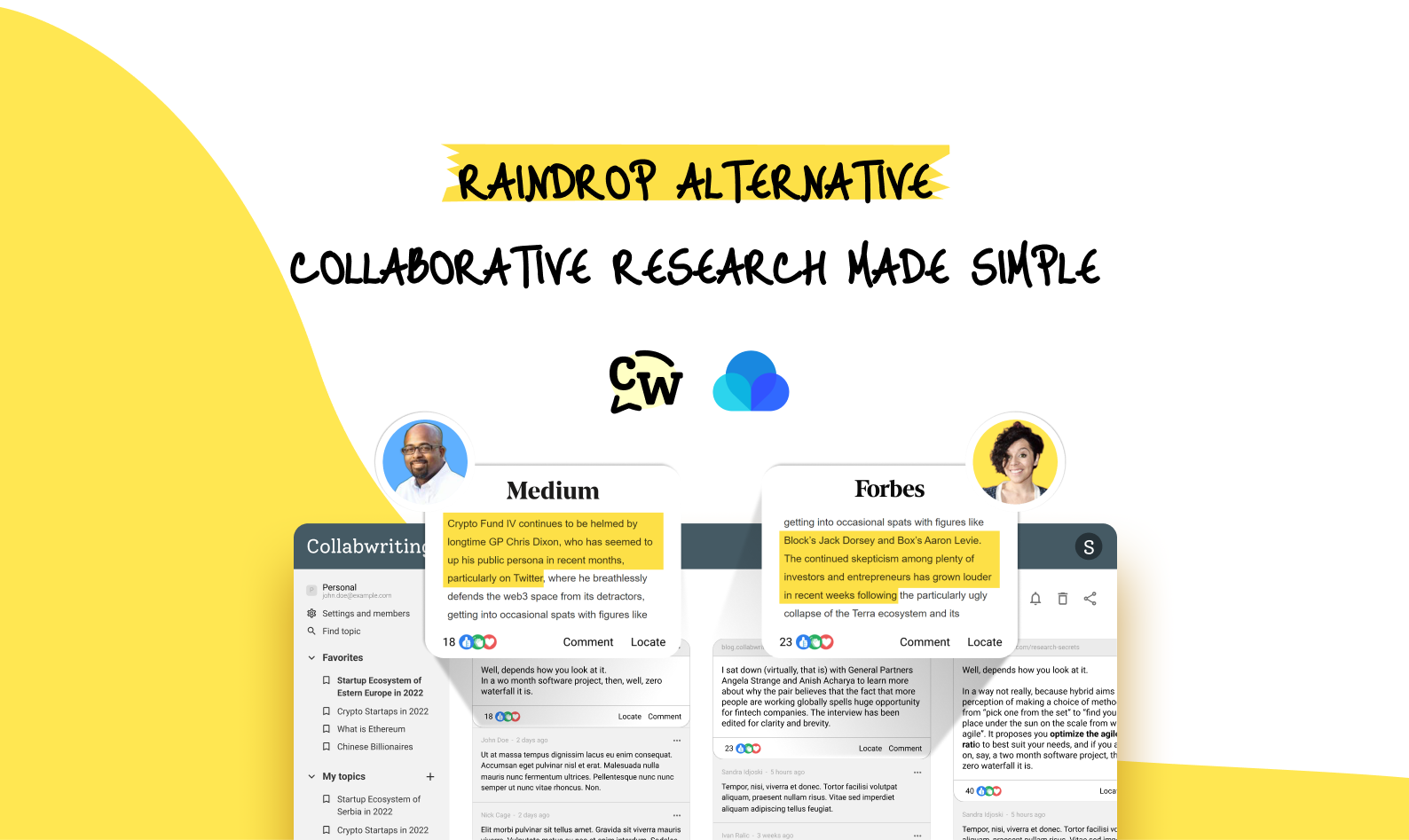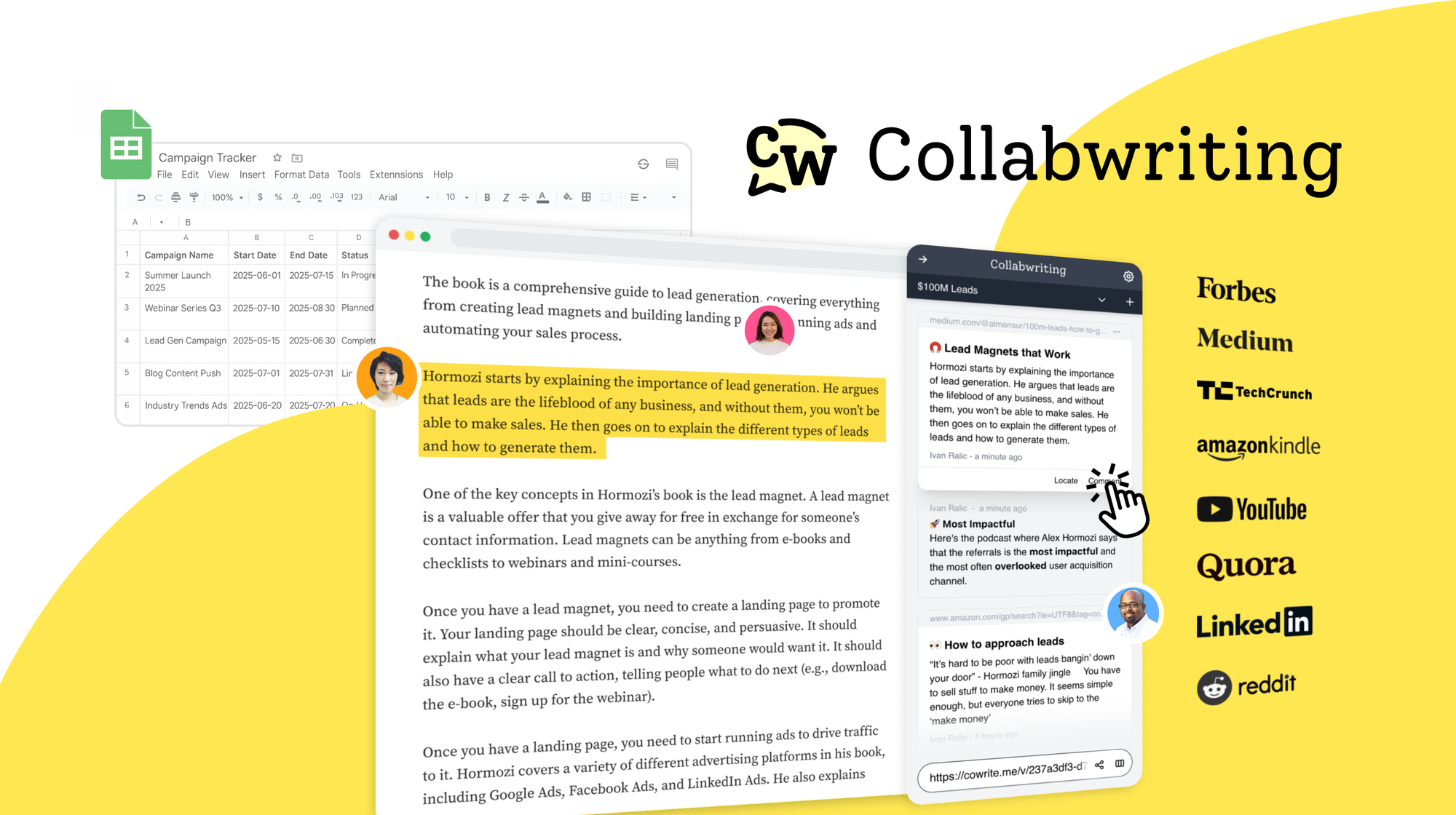Research, resource, and knowledge management are terms that often get mixed up.
At first glance, they sound similar, but each has a unique role. Whether you work in marketing, consulting, or R&D, understanding how they fit together is key to using information effectively.
This guide breaks down the difference between research management, resource management, and knowledge management, and shows how they work in contexts like market research and R&D knowledge management.
Research Management - The Initial Step
Research management is about finding, collecting, and evaluating information from reliable sources.
Research management, which is the first phase of the research process, can often be the most challenging.
When starting a project, you often gather information online - bookmarking pages, saving resources, and collecting anything that might be useful.
Some of it will be discarded later, but this research phase lays the foundation for effective resource and knowledge management.
Without research management, valuable data is scattered and hard to use.
Here are a few examples of research management in practice:
- In market research you might collect survey responses, competitor insights, and industry reports.
- In R&D, you may gather data from experiments, studies, and test results.

Resource Management - Organizing What You've Gathered
Once information is collected, it becomes a resource. Resource management means storing and organizing those materials so you can find them again.
Think of it as your library of research sources - articles, PDFs, presentations, and datasets.
Well-organized resources save teams from repeating work and losing track of valuable findings.
Key Elements of Resource Management
Resource management is about making the most of the tools, materials, and information you collect during research.
It ensures resources are identified, allocated, monitored, shared, and optimized for the best results.
- Identifying resources
- Define what you need for the project - software like Collabwriting, reference materials, or access to databases.
- Allocating resources
- Assign tasks and sources to team members based on expertise and availability, ensuring workload is distributed effectively.
- Monitoring and managing
- Track how resources are used to avoid duplication or waste. With Collabwriting, you can follow progress through notes, highlights, and comments stored in one place.
- Collaboration and sharing
- Make resources easily accessible to the whole team. Collabwriting allows seamless sharing of web highlights, PDF notes, and YouTube annotations so everyone has the same context.
- Optimization and adaptation
- Adjust how resources are used as project needs evolve. Collabwriting supports real-time collaboration and updates, helping teams stay flexible and efficient.


What Knowledge Management Involves - Turning Insights Into Action
Research and resources alone don’t create value. That happens when information is processed, shared, and applied.
That’s the role of knowledge management.
The Role of Knowledge Management
- connecting insights across project,
- making them accessible to the right people,
- and ensuring lessons learned aren’t lost.
In essence, knowledge management is about making sure that the right information and insights are available to the right people at the right time.
- Capturing knowledge
- Sharing knowledge
- Utilizing knowledge
- Continuous improvement
- Tools and techniques
Read more here 👈🏼
How Research, Resource, and Knowledge Management Work in Different Contexts
Each type of management - research, resource, and knowledge - has a unique role depending on the field or department.
Understanding how they apply in real-world contexts can help you (and your team) make the most of them.
Research Management In Practice
- Academic settings: Supporting research projects, grant applications, and publication processes.
- Scientific fields: Organizing experiments, tracking data collection, and ensuring accurate analysis.
- R&D (Research & Development): Driving innovation, product development, and market research to support new technologies and strategies.
In R&D, experiments generate a huge amount of data. Without a system, teams risk duplicating mistakes or missing valuable patterns.
R&D knowledge management captures discoveries, test results, and iterations in one place. That way, each project builds on the last, speeding up innovation and avoiding wasted effort.
Resource Management Across Activities
- Project management: Allocating budgets, team members, and materials to deliver quality outcomes on time.
- Operational activities: Managing schedules, inventory, and equipment to optimize efficiency and reduce costs.
- Marketing activities: Collecting and organizing resources for campaigns such as customer insights, visuals, and reference materials to build effective strategies.
Knowledge management for market research helps teams do more than just collect customer data. It ensures insights are stored, tagged, and shared so everyone can access them.
Instead of running the same survey twice or losing notes in spreadsheets, teams have a system that keeps research alive, ready to support the next campaign, pitch, or strategy.
Knowledge Management in Departments
- Human Resources: Sharing best practices for recruitment and training.
- Marketing: Analyzing customer feedback and insights to inform campaigns.
- Sales: Capturing and sharing successful sales strategies and customer interactions.
- Operations: Documenting standard operating procedures and lessons learned to improve processes.
How Research and Knowledge Management Work Together
- Research provides the raw material.
- Resource management organizes that material into a library.
- Knowledge management transforms it into actionable insight.
Together, they create a cycle:
Gather → 2. Organize → 3. Apply → 4. Improve.
This cycle powers both market research and R&D projects.
Where Collabwriting Fits Best
Collabwriting helps teams move smoothly through this cycle. You can:
- Collect snippets from articles, PDFs, or videos.
- Organize them into clusters and topics.
- Share with your team, keeping both sources and comments attached.
Instead of losing insights in spreadsheets or chat threads, Collabwriting keeps research structured and connected, so your team always knows where information is and how to use it.
Conclusion
Understanding the differences between research, resource, and knowledge management can transform the way you work.
- Research management helps you gather the insights you need to get started.
- Resource management ensures your tools, data, and team are organized and used effectively.
- Knowledge management allows you to capture and share lessons, so everyone benefits and improves over time.
Think of it like launching a marketing campaign:
First you research the market, then you allocate resources to your team, and finally you apply knowledge from past campaigns to boost results.
By combining all three, you create a system that improves efficiency, collaboration, and decision-making and gives your team the confidence to take on any challenge.
What is the difference between research management and resource management?
Research management focuses on gathering and organizing the information you need for your project, while resource management comes after research - it organizes tools, materials, and people to use that information effectively.
Both are essential but cover different stages.
How do research and knowledge management connect?
Research gathers the data, while knowledge management ensures it’s applied and shared effectively across projects.
How can Collabwriting help with research management?
Collabwriting makes it easy to gather and organize your research. You can save and annotate web pages, PDFs, and other resources all in one place, keeping your research structured and accessible.
Why is knowledge management important?
Knowledge management ensures that insights and lessons learned from research and resources are shared with your team. It helps everyone make better decisions and fosters a culture of learning and improvement.
What is the role of knowledge management in market research?
It helps teams organize customer insights, competitor data, and campaign results into a system that can be reused for better decisions.
Why is R&D knowledge management important?
It ensures experiments, test results, and lessons learned are captured so innovation builds on past work instead of starting from scratch.
How does Collabwriting support knowledge management?
Collabwriting allows you to document, organize, and share key findings, lessons, and best practices. Its collaborative features make valuable information accessible to the whole team, improving learning, efficiency, and adaptability.






![The Best Tool for Collaborative Research in Content Marketing Teams [2026]](/content/images/2025/12/image--5-.png)

![5 Tools Marketers Use to Organize Research - Compared [2026]](/content/images/2025/11/cover-4-1.png)

![Build Credibility in Research: Smart Way to Verify Information and Track Sources Easily [2025]](/content/images/2025/10/covers-for-blog--7--1.png)

![How Marketers Can Turn LinkedIn Content into Collaborative Research [2025]](/content/images/2025/10/covers-for-blog--8-.png)
![Best Readwise Alternative for Personal & Team Research [2026]](/content/images/2025/09/Frame-814--3-.png)

